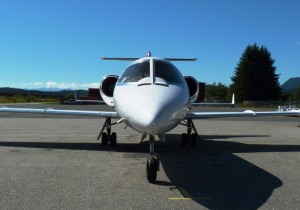The state has ordered a Seattle-based medevac insurance program to end coverage in Alaska.
Airlift Northwest’s AirCare program fills the gap between air ambulance charges and what health insurance pays.
Marty Hester of the Alaska Division of Insurance says it’s changed the way it does business. That means it has to follow a different set of rules.

“The exemption they were operating under was as a nonprofit. And with their corporate restructure, they were no longer deemed a nonprofit. Therefore, the exemption no longer applied to them,” Hester says.
The decision will not affect Airlift Northwest’s ability to provide medical evacuation flights in the state.
It and other air ambulance services take seriously ill or injured patients to hospitals with levels of care not locally available. Medevacs can cost $100,000 or more, depending on the distance and route.
Airlift Northwest began more than 30 years ago as part of the University of Washington’s medical system, which also includes hospitals and clinics. It operated for a while as a separate nonprofit group. But it moved back to the university a few years ago.
Executive Director Chris Martin says Airlift Northwest remains a nonprofit agency under Washington state rules. So she’s disappointed Alaska officials decided it isn’t.
“We have a business license with the state of Alaska. We have our Juneau base in the state of Alaska. Nothing has changed and this letter to us came out of the blue,” she says.
Martin says the AirCare program has more than 1,600 Alaska members.
They’ve all been sent a letter saying coverage will end when their year-long memberships run out. The program also will not enroll any new Alaska members.
The state insurance division’s Hester says the issue is not at all related to the Affordable Care Act, also called Obamacare.
He says Airlift Northwest voluntarily complied with the order. And he says it could change its Alaska program and resume business.
“If they decide to become compliant with Alaska insurance statutes, and offer an approved insurance product, then they would be able to offer the membership program,” Hester says.
Airlift Northwest’s Martin says it started the AirCare program to fill a need, not to make money.
So she says that’s not going to happen.
“You know, we are part of the University of Washington and our mission is our medical transports, not insurance. Nor is the university’s,” Martin says.
Most of its Alaska business is in Southeast, but it also serves Anchorage and other parts of the state.
Its main competitor, Utah-based GuardianFlight, does not have a similar membership program.
Fairbanks-based Apollo Medi Trans offers medevac insurance in Alaska. The state shut it down for part of this year after it failed to renew its license. State officials say it’s not affected by this decision.
Ed Schoenfeld is Regional News Director for CoastAlaska, a consortium of public radio stations in Ketchikan, Juneau, Sitka, Petersburg and Wrangell.
He primarily covers Southeast Alaska regional topics, including the state ferry system, transboundary mining, the Tongass National Forest and Native corporations and issues.
He has also worked as a manager, editor and reporter for the Juneau Empire newspaper and Juneau public radio station KTOO. He’s also reported for commercial station KINY in Juneau and public stations KPFA in Berkley, WYSO in Yellow Springs, Ohio, and WUHY in Philadelphia. He’s lived in Alaska since 1979 and is a contributor to Alaska Public Radio Network newscasts, the Northwest (Public Radio) News Network and National Native News. He is a board member of the Alaska Press Club. Originally from Cleveland, Ohio, he lives in Douglas.




